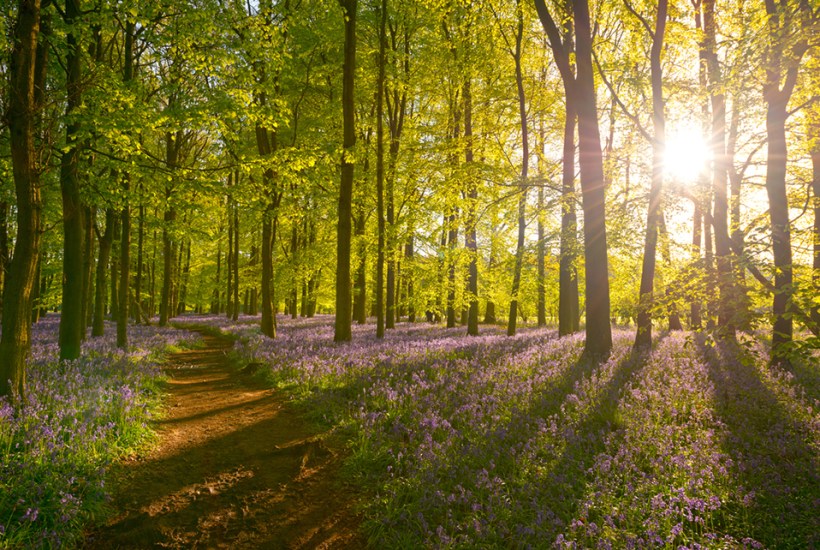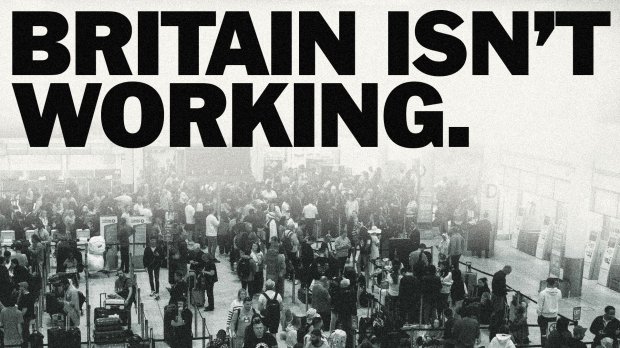To listen to many environmental campaigners, you would think that Britain was a toxic wasteland. They tell us that our wildlife is depleted, that our green spaces are endangered and that 40,000 people a year are dying from air pollution. This week, the Wildlife Trust came up with another figure: that it would cost £1.2 billion a year to repair the industrial despoliation of Britain.
Everyone wants clean air and water and to live surrounded by healthy green spaces, and there are places that could be a lot cleaner than they are. Yet in many ways Britain has become a far greener and more pleasant land over the past few decades thanks not so much to state subsidy but to business.
Take the figure of 40,000 deaths a year from air pollution. It comes from a 2016 report by the Royal College of Physicians, which in turn derived its figures from government estimates of the number of deaths which could be attributed to pollution from nitrogen oxides and small particulate pollution. Those figures have also been used by Sadiq Khan to justify his ‘emergency’ expansion of the Ultra Low Emission Zone in London.
The report acknowledges that air quality has massively improved over the past 70 years, but this message tends to get lost. Since 1970, the levels of nitrogen oxides have fallen by 76 per cent and small particle pollution by 85 per cent. As concerning as deaths from air pollution are, this is a story of success.
Remember acid rain, blamed for eroding historic buildings – not to mention damaging human lungs – in the 1970s? Sulphur dioxide pollution, the cause of acid rain, is down by 98 per cent, largely on account of the decline in coal burning. UK carbon emissions peaked in 1970 and are now at levels not seen since Victorian times.
The good news about the environment does not stop with the air. In 1919, the forested area of Britain reached a low of 5 per cent. It is now at 13 per cent and increasing rapidly by the year. Salmon have returned to the Thames. Ospreys have returned to the skies after a century’s absence. While some species may be in decline, many others, such as roe deer and badgers, have rebounded – so much so that their numbers are now regarded by environmental bodies as a problem, proving that you can’t really win.
There is still much to do. For example, far too much raw sewage is being dumped in rivers and seas during heavy rainfall. Yet it is foolish to decry the remaining problems while failing to acknowledge the re-greening of Britain. Many of the improvements have been helped by regulation such as the Clean Air and Environmental Protection Acts. However, the main driver of improvement is industrial progress.
Companies tend to seek efficiency, which mitigates pollution. In 1997, the average car managed 35 miles per gallon; now it’s closer to 55 miles. Cars that use less petrol sell better. Clean-burning technology has improved engines and dramatically cut pollution from exhaust gases. And that is before we even get around to the next stage of the automotive revolution: electric vehicles.
There are some who try to tell us we will have to become vegan for the sake of the planet, as a result of the methane produced by farm animals. Yet technology has come to the aid of the environment here, too: the number of dairy cattle in Britain has fallen from 3.5 million to two million over the past half century – while increasing milk yields mean total output has stayed the same. Technology is being developed that can treat methane from cow dung not as a problem but as a resource, using it to heat cattle sheds and power agricultural machinery.
What about giving land back to nature? Already 26 per cent of the British countryside is protected, with a target for 30 per cent by the end of the decade. Rising arable yields have allowed marginal land to be left fallow so that soil quality can be allowed to improve. The proportion of land on which pesticides are used has fallen by a fifth in just a few years.
If we want a better environment, as well as a decent standard of living, we have to compromise. Many of the things people need to survive cannot be produced without some effect on the natural environment. But business can work with nature; indeed it often has an interest in doing so.
When environmental groups try to present enterprise as the enemy, they blind themselves to the true story of our times. Capitalism, technology and consumer demand are allowing us to get more from less: innovation and the choices of millions of consumers mean ever-rising environmental standards and ever-falling pollution. The many environmental successes of the past few decades should be acknowledged, not downplayed in an effort to present Britain as being on the path to total ecological destruction.
Got something to add? Join the discussion and comment below.
Get 10 issues for just $10
Subscribe to The Spectator Australia today for the next 10 magazine issues, plus full online access, for just $10.
You might disagree with half of it, but you’ll enjoy reading all of it. Try your first month for free, then just $2 a week for the remainder of your first year.














Comments
Don't miss out
Join the conversation with other Spectator Australia readers. Subscribe to leave a comment.
SUBSCRIBEAlready a subscriber? Log in